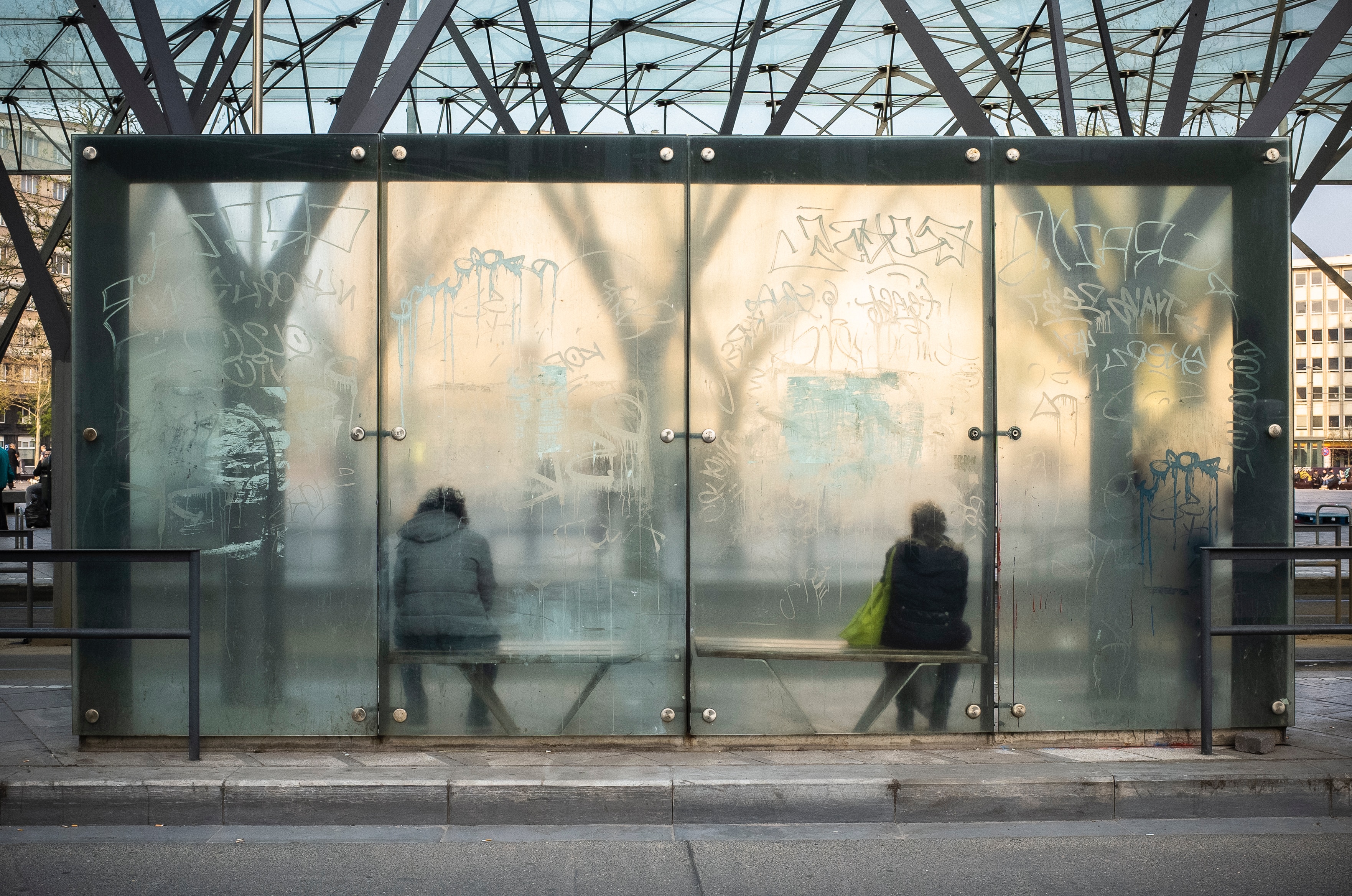
(Unsplash/Michael Havenith)
The fabric of our society, and even our church, is becoming increasingly fragmented. We've always had differences and disagreements between our perspectives and ideology. It's in the (sometimes uncomfortable) mix of discourse, compromise, and relationship that we touch into the deeper values that unite us over and above our differences. We also discover new insights and continue to evolve through the process, both personally and collectively, potentially strengthening the ties that bind us to one another.
Somehow, however, we have crossed a line.
Polarization is becoming the norm, as evidenced on any given day by a quick perusal of the day's headlines. Polarization also has real life consequences. It can lead to hateful speech and actions, even at the highest levels of authority, which not that long ago would have been unimaginable or at least unequivocally rebuked by other public figures. It can also cause even the most high-minded among us to dismiss or tune out information that doesn't match our own narrative.
I can't help but think that fragmentation and polarization also tear apart the wholeness of our human dignity, bit by bit. Each day I pray that we can find and walk the path of healing and recognition of our unity in our diversity.
How do we move from increasing fragmentation to healing the distance that separates and divides us? Marist Father Gerald A. Arbuckle explores this challenge in his book, Loneliness: Insights for Healing a Fragmented World (Orbis: 2018).
Communities are fragmenting. Once-comforting personal and cultural identities are disintegrating as people lose their connections with each other and with their past. Loneliness exists where it did not before. Yet worse than fragmentation are the increasing polarizations in society that further increase loneliness, especially for those who feel powerless to act.
Arbuckle, a practical theologian and cultural anthropologist, warns us that this movement toward fragmentation, polarization, and loneliness is a constant danger "in our contemporary postmodern cultures, with their rapid and complex changes." If not checked, temporary loneliness in this context may become chronic and pathological, leading to "significant psychological stress, ill health, and social dysfunction." He points to the work of anthropologists who have seen terms like "witches, enemies of the people, political subversives, conspirators, and polluters of orthodoxy" being used throughout history to place blame during times of chaos or cultural disintegration. These polarizing thoughts can replace rational thought and become an easily accessible tool for those seeking to find the cause — in others — for the chaos.
We are indeed living in such a time of change; some even name this as a change of era. The comfortable are being uprooted, institutions are falling, and those on the margins are being squeezed even further out.
Hope, Arbuckle reminds us, "is integral to keeping loneliness from slipping into depression or despair." How might we act in hope to mend the tears and prevent future fragmentation?
Advertisement
Recently as I pondered this big question, I remembered the experience of defragmenting my early generation Windows PC. For those readers only familiar with the fast, self-repairing devices of today, it was common with older desktop computers to have to manually start a hard drive defragmentation program when your system started to slow down.
When it comes to computers, fragmentation happens over time as the computer writes, overwrites, and erases information from the hard drive. As the system tries to find space for all the data, it sometimes splits, or fragments, a single file into multiple parts. When the user attempts to later access a fragmented file, the computer works extra hard, and slowly, to reassemble the fragmented parts, resulting in the slow slog of finger-tapping-waiting on the part of the user. Sometimes, as I recall, the task was simply too big for the computers of the past and everything simply froze. That was when you called for tech support to run the defragmentation program. Your computer would display a status screen, updating you on this long repair process:

(Wikimedia Commons)
Each of those little colored blocks represents a different status for the file — fragmented, contiguous or unmovable. During a busy day, after some excruciating moments of frustration with a slow computer, it could be mesmerizing to watch the display as my computer defragmented itself and made the data whole again. Fragmented data would be reunited and made whole. Files that were out of order would move closer to their related documents. Yet some rifts were unmovable, unrepairable and needed to be worked around.
Like computers, we human beings, and by extension our communities, are in danger of becoming fragmented over time. Our biases (conscious and unconscious), fears and pain can overwrite, and even erase, what we know to be true about our common humanity. We who were created by the Triune God to be in relationship can become isolated and lonely. The distance between us, our stubborn positions, and forced isolation only makes it worse. Before we know it, we can't run our reasonable mind processes. We get stuck on the biases and the fears, which lead us to ignore that which we know to be true about ourselves and other people, the primacy of human dignity, honesty, love, justice and possibility.
What if we ran our own defragmentation program, reflecting on our lives, relationships, and connections? Where are we getting stuck? Where are our true beliefs and values fragmented? What relationships and connections might we be called to heal? Who might we reach out to in order to repair a breach, or simply listen?
Our social fabric has been fragmented, bit by bit.
So, too, I believe we can work to heal those tears, bit by bit, in our interactions, our prayers, actions and relationships. We just need to remember to run our own defragmentation programs.
[Susan Rose Francois is a member of the Congregation Leadership Team for the Sisters of St. Joseph of Peace. She was a Bernardin scholar at Catholic Theological Union and has ministered as a justice educator and advocate. Read more of her work on her blog, At the Corner of Susan and St. Joseph.]






